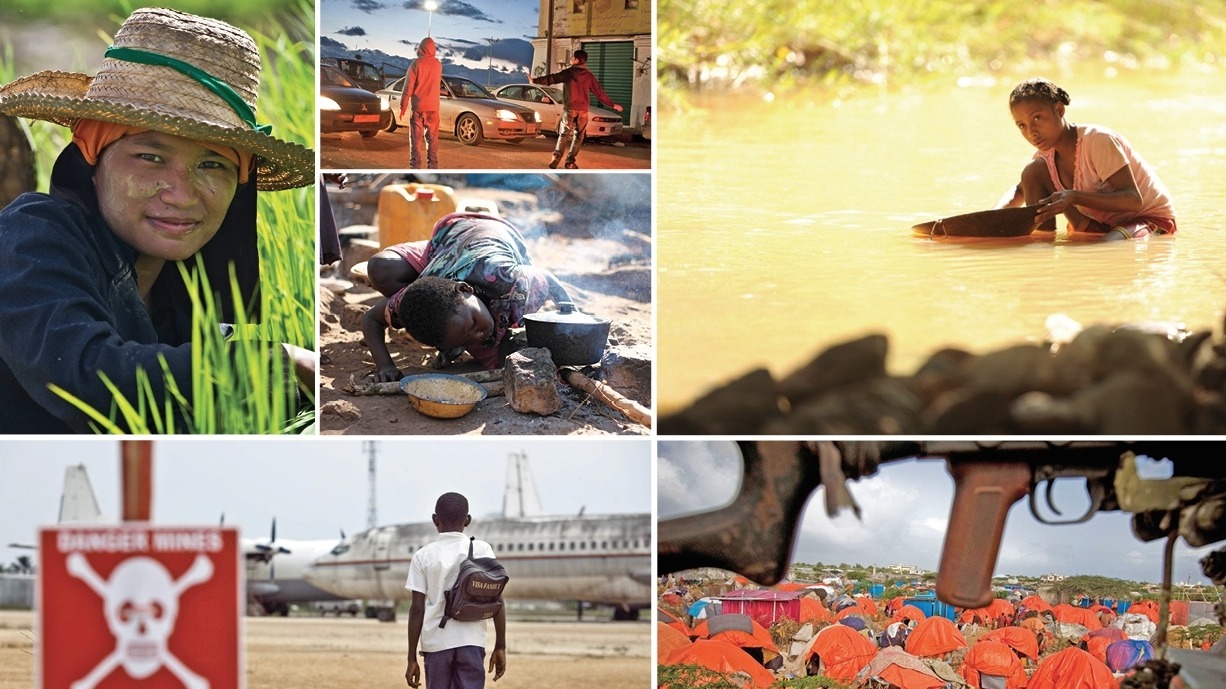Want to stay on top of the current debate around humanitarian and development issues without having to trawl the web?
Welcome to IRIN's new reading list.
Every week our global network of specialist correspondents will share some of their top picks of recent must-read research, reports and in-depth articles while also highlighting key upcoming conferences and policy debates.
Five to read:
Humanitarianism in the Age of Cyber-warfare: Towards the Principled and Secure Use of Information in Humanitarian Emergencies
Technology is radically changing how humanitarian agencies handle emergencies, from biometric registration systems to geo-tagging of schools, hospitals and displacement camps. But how secure is this information? It may be collected in good faith, but what if it falls into the wrong hands? This new report from the UN Office for the Coordination of Humanitarian Affairs (OCHA) explores these issues.
DFID's Approach to Anti-Corruption and its Impact on the Poor
This report from the Independent Commission for Aid Impact (ICAI) accuses the UK's Department for International Development (DFID) of not doing enough to tackle low-level, endemic corruption in the countries where it works. Some media outlets have seized on this, saying it is proof that the UK should not be spending so much on overseas aid, but experts say this is too simplistic a reading of the findings.
"Can't afford to wait" - Why Disaster Risk Reduction and Climate Change Adaptation plans in Asia are still failing millions of people
Climate change is having a growing effect across Asia, but in many countries so-called Disaster Risk Reduction strategies are lagging far behind. This is the conclusion of a new Oxfam report which argues that national government, regional bodies, foreign donors and aid agencies must both increase investment and coordination to help millions of people who will be affected by climate change in the coming years.
"I belong" - 10-year global campaign to end statelessness
The UN Refugee Agency (UNHCR) has launched a new campaign called "I belong" aiming to end "statelessness" by 2024. Around the world there are at least 10 million people who are officially "stateless" and without a nationality. This legal limbo often denies them rights and services and can lead to exclusion from education, medical care and legal employment.
Why humanitarians talk to ISIS
This Daily Beast article explores the sensitive issue of supplying aid to territory controlled by the so-called Islamic State (IS) in Syria. It came out a few weeks back, but it's still worth a read if you missed it first time around.
New books:
Blinded by Humanity, by Martin Barber
Veteran aid worker Martin Barber is likely to ruffle some feathers with his frank analysis of the international humanitarian system. The book asks some tough questions about the UN and how it handles emergencies and development. Even if you don't agree with him, this is essential reading for anyone who works with the UN or in the international aid or development sector.
Upcoming events:
Counter-terrorism laws, what aid agencies need to know
On 6 November, the Overseas Development Institute (ODI) in London is hosting a public event discussing whether humanitarian agencies run a risk of falling foul of their domestic counter-terrorism laws by delivering aid to non-government controlled areas. Expect an intelligent discussion from an expert panel looking at whether aid workers risk violating counter-terrorism laws in their attempts to reach people who need humanitarian support. This is particularly pertinent given the limits to aid access in Iraq and Syria right now, and is likely to raise deeper questions about whether aid can end up sustaining conflicts. Those interested can watch live online.
Follow #counterterrorism on Twitter for live coverage.
Combatting Ebola in Liberia: The Role of the International Community
On 10 November, Karin Landgren - the UN Secretary-General's Special Representative for Liberia, will discuss ways in which the international community can better support West Africa at an event at the UK-based Chatham House. It is not being live streamed.
From IRIN:
No easy solution for Myanmar's Rakhine crisis
This week we reported on the plight of the more than 100,000 ethnic Rohingya Muslims who have fled Myanmar since 2012. Myanmar usually makes the news as a post-reform economic growth story, but IRIN goes behind the headlines another story. Our reporting on the Rohingya dates back to 2008, years before ethnic tensions erupted into violent clashes.
This article was produced by IRIN News while it was part of the United Nations Office for the Coordination of Humanitarian Affairs. Please send queries on copyright or liability to the UN. For more information: https://shop.un.org/rights-permissions





